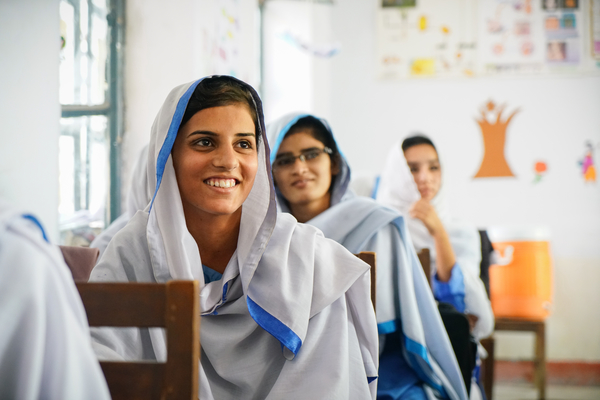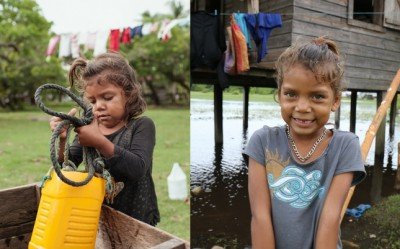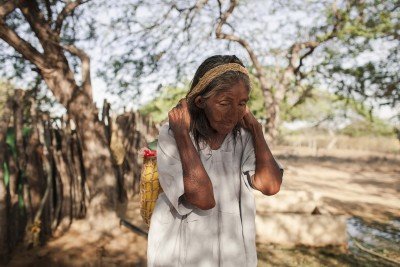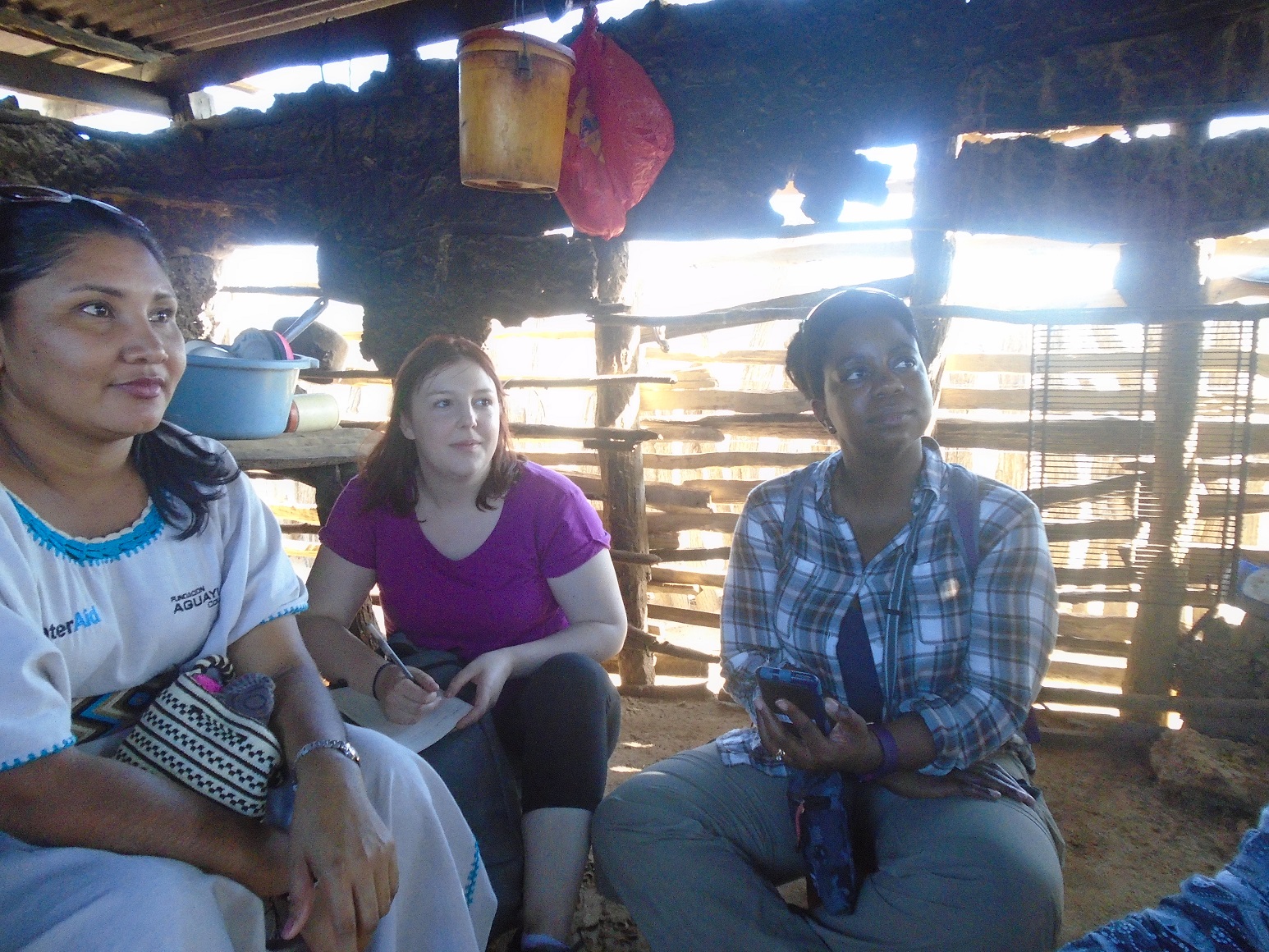Kishwar

In Kishwar’s homeland, menstruation is a taboo subject and is often not discussed. As a result, the majority of women in her community do not engage in adequate menstrual hygiene practices. However, since the WaterAid menstrual hygiene training has been implemented, Kishwar has felt more confident discussing the topic with women of all ages. Additionally, with the installation of a female-friendly toilet at her school, she no longer has to miss school because of her menstrual cycles.
Curator’s note: The following is an excerpt of Kishwar’s story as told by WaterAid staff in November 2016.
“I tell the women in the village about what I’ve learned in school about hygiene,” said 15-year-old Kishwar. “Some women use no sanitary items at all when menstruating. Many are shy and don’t want to talk about things like this, but I feel quite self-assured and think that it’s natural to talk [about it], even with the older women.”
“Then in our area, parents also often choose to keep their daughters out of school, since many schools lack toilets or are unsafe to [use].”
To deal with this problem, WaterAid, with support from the UK Aid, is working to improve access to clean water and toilets at a number of schools in the area and to teach the students the importance of good hygiene. Kishwar is a student at one of the schools that has acquired new toilets and access to water.
She tells us what this has meant for her.
“Before, I’d often miss schooldays when I was having my periods because there wasn’t a toilet at school,” Kishwar said. “My mum didn’t want me and my sisters to go there, she wanted us to stay at home because it was better to be at home when there was no toilet to go to at school while menstruating.”
“Now, the girls are much more self-confident. Nowadays, no one has to know when we’re having our periods, not even my mum does. There aren’t any direct myths surrounding menstruation in our society, but there are religious customs that we follow. For example, we mustn’t touch pickles because it’ll make them unclean and inedible. We can’t wash ourselves when menstruating either because it’s considered bad for our health, so we aren’t supposed to shower until we’ve stopped bleeding.”
“My mum has forbidden me to wash myself when I’m menstruating, but I do it anyway. I don’t feel clean otherwise. We’ve learned in school to use cloth pads to wash and dry them. We also learned that we’re to eat normal food and to continue with our daily routines as normal. I always complain that I feel dirty when I have my period, so now my mum lets me wash. At school, I use the new washroom. I can also throw away used pads there, and we’ve learnt not to throw them in the toilet.”
AGAHE, the local partner of WaterAid, is implementing “Ensuring Girls rights through school and community-based WASH and improved menstrual hygiene management” in the Muzaffargarh district of Punjab, Pakistan. An important component of the project is related to capacity building through extensive social mobilisation of the schoolgirls and adjacent communities. Health and hygiene sessions with Peer Support Groups, teachers and community women enabled them to eliminate the malpractices around menstruation and personal hygiene.
Government Girls High School Sinawan is a model school in terms of sanitation facilities and how the management of schools has maintained these facilities over the period of time. The girls have not only been proactively involved during these health and hygiene sessions but also have maintained their personal hygiene at all levels. The cultural misinterpretations around menstruation have been a word of past for these girls as they have adopted hygienic practices to ensure that they live a healthier, reproductive life in the future.
Photo credit: WaterAid/ Sibtain Haider






